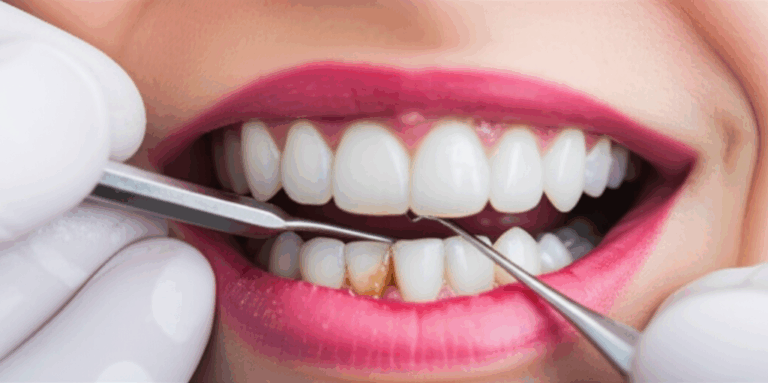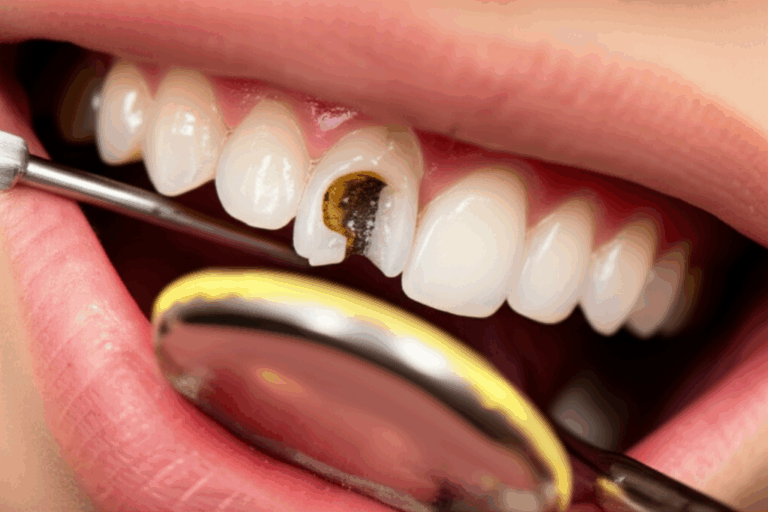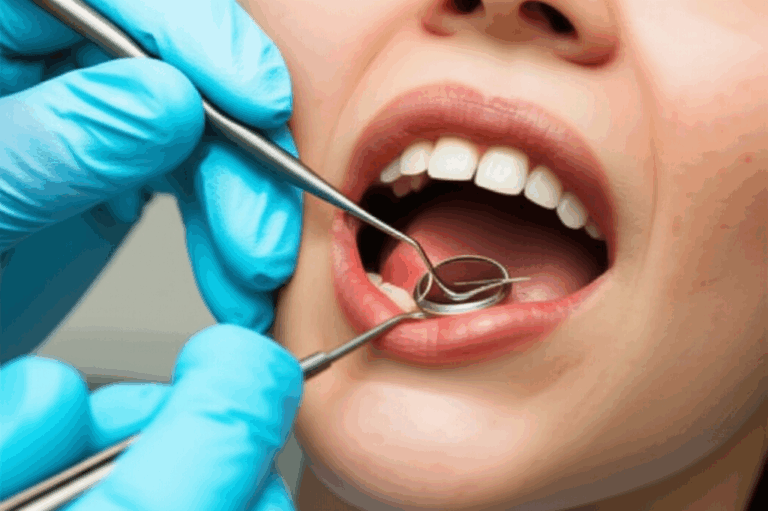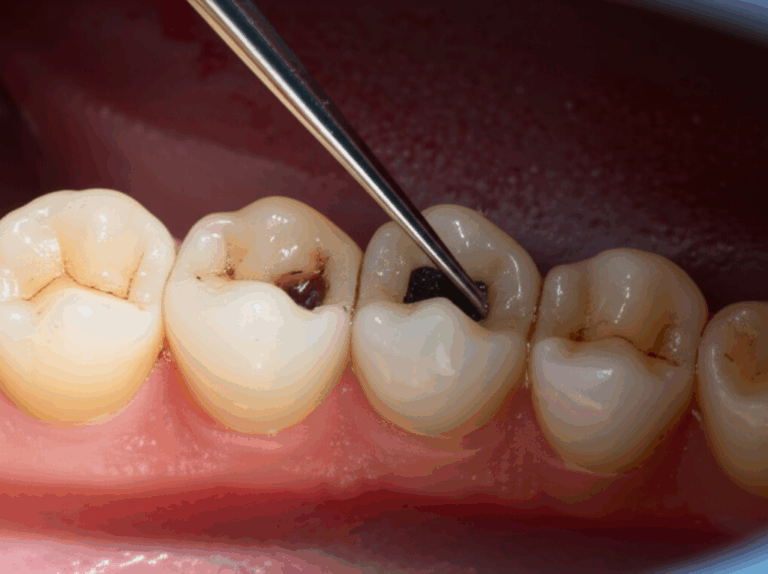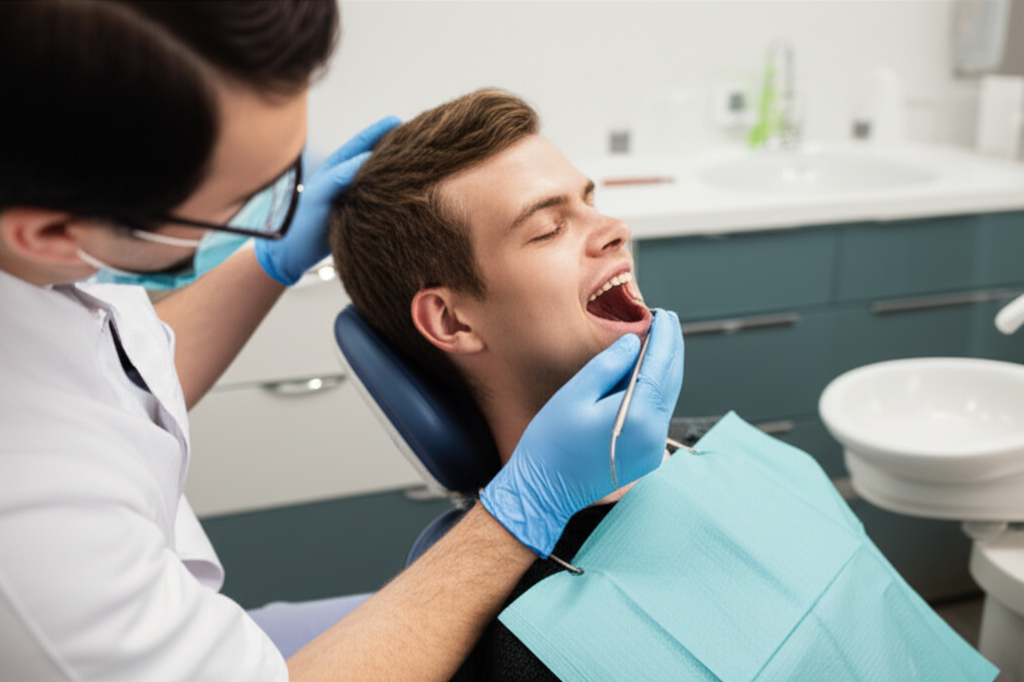
Can a Dentist Help with Bad Breath? Your Friendly, No-Judgment Guide
That awkward moment when you lean in to talk to someone and catch a whiff of your own breath—yeah, we’ve all been there. If you’re worried about bad breath (the fancy term is “halitosis”), you’re not alone. In fact, bad breath is up there with cavities and gum problems as one of the top reasons people visit a dentist. But here’s the real question: Can a dentist actually help with bad breath?
Short answer: Yes, a dentist can absolutely help you beat bad breath—often better than anything you use at home. Even better, getting professional help takes care of more than just your social life. Bad breath could be a sign your mouth, and maybe your body, needs some extra attention.
In this easy guide, I’ll break down how dentists solve bad breath, what causes it, and what you can do to stay confident and fresh. So take a deep breath (pun intended)—I’m here to answer all your questions about getting rid of bad breath for good.
What We’ll Cover
- The Dentist’s Role: Can They Really Help With Bad Breath?
- Why Your Breath Might Smell: Causes a Dentist Looks For
- How Dentists Diagnose Bad Breath: What Actually Happens in the Chair?
- Real Treatments That Work: Dental Solutions for Halitosis
- How to Prevent Bad Breath Every Day
- When It’s Time to Call Your Dentist
- Key Takeaways and Your Next Steps
The Dentist’s Role in Conquering Bad Breath
Yes, Your Dentist Is Your Best Helper—Here’s Why
Let’s start with the question you’re probably searching right now: Can a dentist really help with bad breath? The answer is yes! Dentists study everything about your mouth—teeth, gums, bacteria, and even your tongue and how all that affects your breath.
Think of dentists as detectives. If you’ve tried mints, rinses, and constant brushing with no luck, a dentist has the tools and smarts to go deeper and figure out why your breath isn’t as fresh as you want.
Why It Matters: Bad Breath Isn’t Just Embarrassing
We all want to feel good about ourselves, especially up close to other people. But here’s the thing—bad breath that won’t go away isn’t just a beauty problem. It can point to real health problems in your mouth, like gum disease or tooth problems. Sometimes, it can even mean something bigger is going on in your body, such as diabetes or infections. Finding the cause early could save you a lot of hassle (and cash) later.
What You’ll Learn in This Guide
By the end, you’ll know:
- The true reasons why breath goes bad, and how to know if it’s normal (like morning breath) or a real problem
- What really happens during a dental exam for bad breath—what the dentist will ask, and what tools are used
- Which treatments actually work, based on your own situation
- Step-by-step tips for keeping your breath good, every single day
Understanding Bad Breath: Common Causes a Dentist Looks For
You might be surprised, but about 90% of bad breath starts right in your mouth. Let’s break down what that means, without any fancy words.
Most Common Mouth Causes
1. Poor Cleaning Habits
Plaque and food stay between your teeth or on your tongue, and bacteria love to eat this stuff. It’s like leaving dirty dishes out all night—things start to stink.
2. Gum Disease (Gingivitis & Periodontitis)
When bacteria live under your gums, they really get smelly, letting off gasses called volatile sulfur compounds (VSCs). You can fix gum disease if you catch it early.
3. Dry Mouth (Xerostomia)
Saliva is your mouth’s own cleaner. If you don’t make enough (maybe from meds, stress, or not drinking water), smelly bacteria do better.
4. Tooth Decay and Infections
Cavities are more than holes in your teeth—they’re places for bacteria. Infections inside your tooth or gums make breath especially bad.
5. Tongue Coating
Your tongue’s rough surface grabs bacteria and food. If it looks white or yellow, it’s probably holding onto more than just food.
6. Oral Infections or Dental Appliances
Dirty dentures or bridges, loose crowns, or wisdom teeth that are stuck—not coming out all the way—can all trap bacteria and cause smell.
7. Tonsil Stones (Tonsilloliths)
If you always get a sore throat or see little white bumps at the back of your mouth, these are bits that collect bacteria and cause big-time bad breath.
Causes Outside the Mouth (About 10% of Cases)
Sometimes, the problem is somewhere else:
- Sinus, Throat, or Lung Infections: Things like post-nasal drip, sinus problems, or bronchitis. What drips down your throat can change your breath.
- Stomach Problems: Acid reflux lets stomach acids and leftover food come up.
- Other Health Issues: Diabetes, kidney or liver problems, and a few rare illnesses can show up as bad breath.
- Lifestyle Habits: Smoking, some medicines, and smelly foods (like garlic and onions) make it worse.
Bottom Line?
While mouth spray just covers up the smell, a dentist finds and fixes the main reason—often before it turns into something worse.
How Dentists Diagnose Bad Breath: What Actually Happens in the Chair?
You might think a dentist just tells you to brush more, but checking for bad breath is actually more like going through a friendly, careful check-up.
Here’s What to Expect
1. Full Mouth Exam
Your dentist starts with a good look at your mouth. They check your gums, teeth, tongue, top of your mouth, and throat for any clues—like swollen gums, pus, or a coated tongue.
2. Health History
Don’t worry, it’s not being nosey. They’ll ask about medicines (a lot cause dry mouth!), allergies, smoking, diet, and past sicknesses. It’s like putting together a puzzle.
3. Smell Test
- Doctor Smell Test: Sometimes, the oldest way is still good—the dentist smells your breath (it’s part of the job, don’t feel bad).
- Special Machines: Some offices have a Halimeter or other breath testers. These check for certain gases (VSCs) in your breath, showing issues you can’t see.
4. Finding the Real Problem
Based on what they learn, your dentist finds out if the issue is from your mouth, another place, or both. That way, what they do next can actually help, not just hide the smell.
What About X-rays or Sending You Elsewhere?
If your dentist thinks there’s an infection, big cavity, or stuck wisdom tooth, they might want an x-ray. If it seems like the problem isn’t in your mouth, they’ll send you to your doctor, an ear-nose-throat doctor, or someone for your stomach—so you get to the answer faster.
Real Treatments That Work: Dental Solutions for Bad Breath
Here’s what your dentist can actually do to help. There aren’t magic tricks, but there are real fixes.
A. Professional Cleaning: The Deep Clean
- Cleaning Below the Gums: If gum disease is the reason, your dentist or hygienist takes off hard plaque and tartar both above and below your gums. It’s a deep spring cleaning for your mouth.
- Regular Cleanings: Even if you brush and floss, nobody gets every spot. Seeing your dentist twice a year keeps smells and bacteria away.
B. Fixing Mouth Problems
- Filling Cavities: Stops decay and the bacteria living in it.
- Treating Infections: Take care of abscesses, mouth sores, and broken teeth. Leaving these lets bacteria grow.
- Tongue Scraping: Your dentist might show you how to scrape your tongue to get rid of buildup.
- Fixing Dental Work: If crowns, bridges, or dentures don’t fit well, food and bacteria get in. Your dentist can repair or replace these. Dental ceramics labs help make these custom dental parts.
C. Special Rinses and Pastes
- Strong Mouthwashes: Stuff like chlorhexidine, CPC, or zinc fights the bacteria that make bad breath. These aren’t just minty—they fix the real problem.
- Germ-Fighting Toothpastes: Made to beat bacteria, not just freshen the taste.
- Helping with Dry Mouth: If dry mouth is causing the smell, they can give you rinses or pills to make more spit, or work like saliva.
D. Home Tips and Everyday Habits
Your dentist will give you advice that could include:
- A better way to brush and floss (especially tricky spots)
- Drinking more water
- Avoiding certain foods or habits
- Getting help quitting smoking or drinking less alcohol
E. Seeing Other Experts
If it’s not from your mouth, your dentist might send you to:
- An ENT doctor for nose or throat issues
- A stomach doctor for reflux or tummy trouble
- Your regular doctor for things like diabetes, kidney, or liver problems
How to Prevent Bad Breath Every Day
Just like brushing your hair helps you look better, using good habits in your mouth helps you feel and smell better, too.
The 5-Part Fresh Breath Routine
1. Brush Two Times a Day, Floss Once
It sounds simple, but lots of people forget to floss or miss spots. Floss gets out the hidden junk between teeth where bacteria party.
2. Clean Your Tongue
Use a tool or the back of your brush. You might be surprised what comes off.
3. Drink Enough Water
Saliva is nature’s mouthwash. Drink water all day. If you have dry mouth, your dentist can suggest things to help.
4. Go to the Dentist Regularly
Even if you feel fine, problems can hide until it’s too late.
5. Watch What You Eat and Do
- Stop or eat less of onions, garlic, coffee, and sweet snacks when you want fresh breath.
- Don’t smoke. If you do, quitting helps both breath and gums right away.
- If you use dentures, retainers, or night guards, clean them every day. A removable denture lab or your dentist can give you cleaning tips and tools.
When It’s Time to Call Your Dentist
Not sure when to get real help? Here’s when you should see the dentist:
- Bad breath just won’t go away.
You tried rinses, mints, brushing after every meal…but it’s still there. That’s your sign.
- Other mouth problems show up.
Bleeding gums, dry mouth, sores, trouble chewing or swallowing, tooth pain, or an odd taste—all mean it’s time to get checked.
- You feel worried or shy about your breath.
If you avoid talking or laughing because of your breath, it’s time to let the dentist help.
The sooner you go, the easier and cheaper it is to fix—often with a much easier process than you think.
Your Healthy Takeaway: Key Points and Next Steps
Let’s wrap things up:
What to Remember
- Dentists are experts at finding and fixing bad breath. They don’t just cover it—they find the reason and help you fix it.
- Most chronic breath problems start in your mouth. Plaque, gum problems, dry mouth, and tongue buildup are big reasons.
- Professional care works. A deep cleaning, fixing dental work, and special products are better than store mouthwash.
- Sometimes the cause is not your mouth. If so, your dentist connects you with the right doctor fast.
- Stop it before it starts. Good brushing, flossing, cleaning your tongue, and regular dentist visits save you hassle later.
Take the Next Step
You don’t have to put up with bad breath. It’s usually easy to fix, and there’s nothing to be ashamed about. In fact, it’s one of the most common and easiest things to solve at the dentist. So, the best thing you can do? Book a dental check-up and talk about your breath. Your dentist can find the reason and make a plan just for you.
Ready to learn about fixing your smile? Discover how a crown and bridge lab can help, or check out digital tech at a digital dental lab for high-tech dental work.
Remember: A fresh start—and fresh breath—are just one friendly visit away. Why not make that call today?
FAQs: Quick Answers to Common Bad Breath Questions
Does mouthwash really fix bad breath?
Mouthwash can cover up the smell for a bit, but most store-bought ones don’t fix the real cause. Dentists have stronger ones that treat the problem.
Can cavities cause bad breath?
Yes. When a cavity forms, bacteria break down food and even your tooth—making your breath smell bad.
Can gum disease make my breath worse?
Yes. Gum disease is one of the biggest reasons for long-lasting bad breath, because bacteria under your gums let off those smelly gases.
What if my bad breath isn’t caused by my mouth?
If it’s not from your mouth, your dentist will help you find the right doctor for things like sinus, tummy, or body problems.
How often should I see a dentist for breath problems?
At least every six months. More if you already have gum or dry mouth problems, or if your dentist says so.
Sources and Trust
For more help, check trusted sites like the American Dental Association and good dental clinics anywhere. The key? Don’t struggle alone—your dentist has seen and helped it all before.
Ready to step out with confidence? Fresh breath—and a fresh start—are waiting for you!

